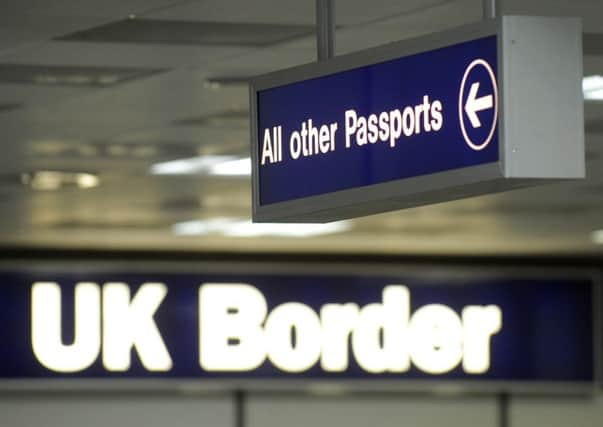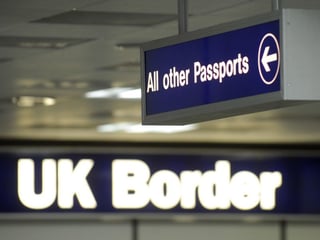Inflow of EU citizens to UK hits 284,000 in year up to Brexit vote


The headline measure - the overall difference between the numbers arriving and leaving the country - was estimated at 335,000 in the year to June.
This was just below the previous peak of 336,000 in the previous year.
Advertisement
Hide AdAdvertisement
Hide AdImmigration, which covers the numbers of people coming into Britain only, was at 650,000 - the highest estimate recorded, the Office for National Statistics said.
An unprecedented 284,000 EU citizens are estimated to have arrived in the UK in the year to June, which covers a period up to and just after the referendum, while net migration from the bloc, which excludes UK citizens who went to other EU states, was at 189,000.
The figures provide the latest indication of the scale of the task facing the Government if it is to reach its controversial target of reducing net migration to below 100,000.
It was also revealed that in 2015 Romania was the most common country of last residence for the first time, making up 10% of all immigrants.
Nicola White, head of international migration statistics at the ONS, said: “Net migration remains around record levels, but it is stable compared with recent years. Immigration levels are now among the highest estimates recorded - the inflow of EU citizens is also at historically high levels and similar to the inflow of non-EU citizens; there were also increases in the number of asylum seekers and refugees.
“Immigration of Bulgarian and Romanian citizens continues the upward trend seen over the last few years and in 2015 Romania was the most common country of previous residence.
“The main reason people are coming to the UK is for work, and there has been a significant increase in people looking for work, particularly from the EU.
“These long-term international migration figures run to the end of June, so it is too early to say what effect, if any, the EU referendum has had on long-term international migration.
“There does not however appear to have been any significant impact during the run-up to the vote.”
